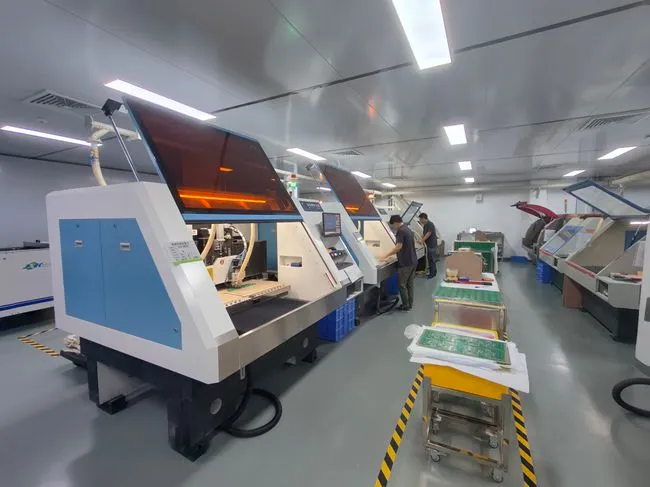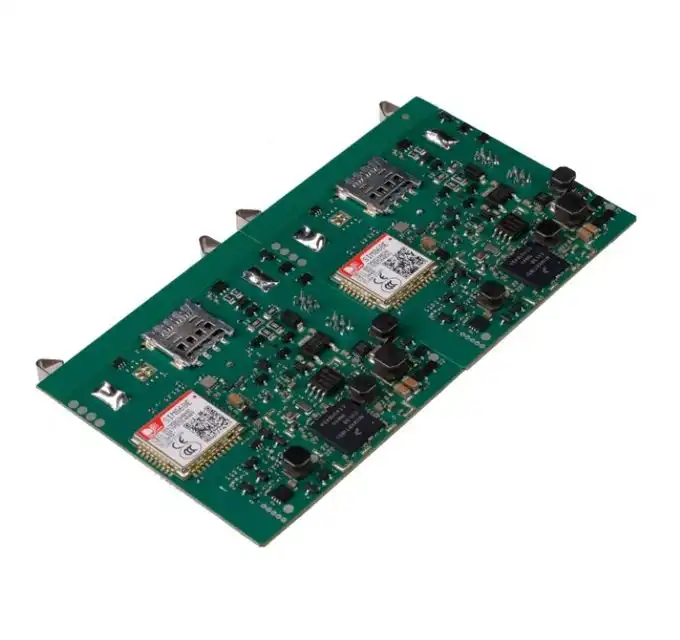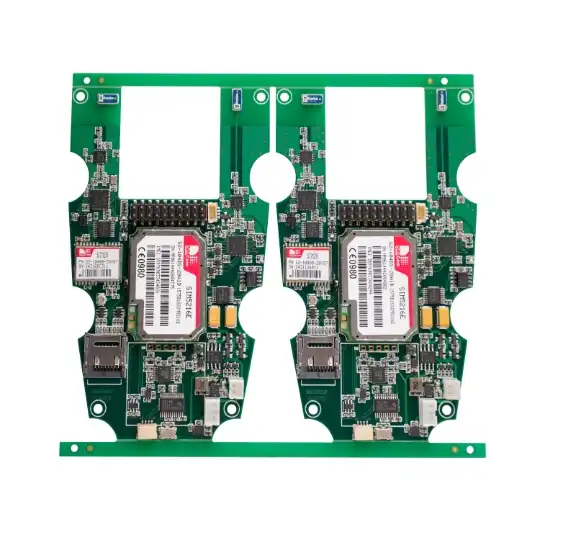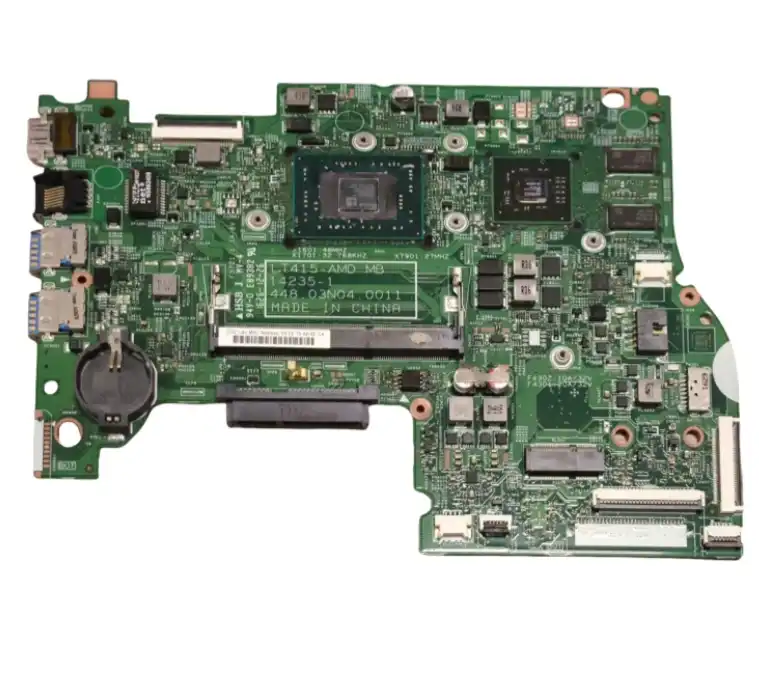PCBA Prototyping Guide – How to Choose a Reliable PCBA Prototyping Manufacturer?
Choosing a reliable PCBA prototyping manufacturer is crucial for the success of your electronic product development. To make an informed decision, consider factors such as the manufacturer's experience, technical capabilities, quality control processes, and certifications. Look for a partner with a proven track record in PCB assembly, state-of-the-art equipment, and a commitment to meeting industry standards. Additionally, evaluate their communication efficiency, turnaround times, and ability to handle your specific project requirements. By carefully assessing these aspects, you can select a trustworthy PCBA prototyping manufacturer that aligns with your project goals and ensures high-quality results.

Understanding PCBA Prototyping and Its Importance in Product Development
PCBA (Printed Circuit Board Assembly) prototyping is a critical phase in the development of electronic products. It involves the process of assembling electronic components onto a printed circuit board to create a functional prototype. This stage allows engineers and designers to test and validate their concepts before moving forward with mass production.
The Role of PCBA Prototyping in Product Innovation
PCBA prototyping plays a pivotal role in product innovation by enabling rapid iteration and refinement of electronic designs. It allows teams to identify and rectify potential issues early in the development cycle, saving time and resources in the long run. Through prototyping, engineers can optimize circuit performance, improve component placement, and enhance overall product functionality.
Key Benefits of PCBA Prototyping
The benefits of PCB assembly prototyping extend beyond mere concept validation. It offers several advantages that contribute to the success of electronic product development:
- Risk Mitigation: Prototyping helps identify and address design flaws before committing to large-scale production.
- Cost Efficiency: By catching errors early, prototyping can significantly reduce overall development costs.
- Time-to-Market Acceleration: Rapid prototyping allows for quicker design iterations, speeding up the product launch process.
- Performance Optimization: Engineers can fine-tune circuit performance and component interactions through hands-on testing.
- Investor Confidence: Functional prototypes provide tangible evidence of a product's viability, aiding in securing investments.
Essential Factors to Consider When Selecting a PCBA Prototyping Manufacturer
Choosing the right PCBA prototyping manufacturer is crucial for the success of your project. Several factors should be carefully evaluated to ensure you partner with a reliable and capable provider.
Technical Expertise and Capabilities
When selecting a PCBA prototyping manufacturer, it's essential to assess their technical prowess and capabilities. Look for a partner with experience in PCB assembly across various industries and project types. Evaluate their ability to handle different board complexities, component types, and assembly techniques. A manufacturer with a diverse skill set can better adapt to your specific project requirements and offer valuable insights during the prototyping process.
Quality Control Measures and Certifications
Quality control is paramount in PCB assembly prototyping. Reputable manufacturers implement robust quality assurance processes to ensure the reliability and performance of assembled boards. Look for certifications such as ISO 9001, which demonstrates a commitment to quality management systems. Additionally, certifications like IPC-A-610 for PCB assembly standards indicate adherence to industry best practices. A manufacturer with comprehensive quality control measures can significantly reduce the risk of defects and ensure consistent prototype quality.
Equipment and Technology
The sophistication of a manufacturer's equipment and technology directly impacts their ability to produce high-quality PCBA prototypes. State-of-the-art SMT (Surface Mount Technology) lines, automated optical inspection (AOI) systems, and X-ray inspection equipment are indicators of a well-equipped facility. Advanced technology enables precise component placement, efficient assembly processes, and thorough quality checks. Manufacturers investing in cutting-edge equipment are better positioned to handle complex prototyping requirements and deliver superior results.
Evaluating PCBA Prototyping Services: Beyond Technical Capabilities
While technical expertise is crucial, other factors play a significant role in the success of your PCBA prototyping project. Consider these additional aspects when evaluating potential manufacturers.
Communication and Project Management
Effective communication and project management are vital for successful PCB assembly prototyping. A manufacturer with clear communication channels and responsive support can greatly enhance the collaboration process. Look for providers that offer dedicated project managers or points of contact to ensure smooth coordination throughout the prototyping phase. Timely updates, proactive problem-solving, and the ability to adapt to changing requirements are hallmarks of a reliable PCBA prototyping partner.
Turnaround Time and Flexibility
In the fast-paced world of product development, time is often of the essence. Evaluate a manufacturer's typical turnaround times for PCBA prototyping and their ability to accommodate urgent requests. Flexibility in production scheduling and the capacity to handle varying order volumes are valuable attributes. A manufacturer that can balance speed with quality ensures that your prototyping needs are met without compromising on the end result.
Cost-Effectiveness and Value-Added Services
While cost shouldn't be the sole determining factor, it's important to consider the overall value proposition of a PCBA prototyping manufacturer. Compare pricing structures and look for transparency in quotations. Some manufacturers offer value-added services such as design for manufacturability (DFM) reviews, component sourcing assistance, or testing services. These additional offerings can contribute to a more comprehensive and efficient prototyping experience, potentially saving time and resources in the long run.
Conclusion
Selecting the right PCB assembly prototyping manufacturer is a critical decision that can significantly impact the success of your electronic product development. By carefully evaluating technical capabilities, quality control measures, communication efficiency, and value-added services, you can identify a partner that aligns with your project goals. Remember that the ideal manufacturer should not only meet your current prototyping needs but also have the potential to support your future production requirements. With the right PCBA prototyping partner, you can streamline your development process, reduce risks, and bring innovative electronic products to market more efficiently.
Choose experienced, ISO-certified prototyping experts | Ring PCB
Ring PCB Technology Co., Limited offers comprehensive PCB and PCBA services, backed by 17 years of industry expertise. Our advanced engineering capabilities include high-density stack-up designs, smart manufacturing processes, and customized solutions for various industries. With state-of-the-art equipment and a commitment to quality, we provide reliable, cost-effective PCB assembly solutions tailored to your unique needs.
Experience our one-stop service from component procurement to final assembly. Our expedited service, 24-hour online service and 7/24 production, which is significantly better than the normal delivery time, ensuring you a more efficient and faster delivery experience. Contact us at [email protected] to power your next project with Ring PCB's innovative approach.
References
1. Johnson, A. (2022). "The Comprehensive Guide to PCBA Prototyping: From Concept to Reality." Electronics Design Magazine, 45(3), 78-92.
2. Zhang, L., & Chen, H. (2021). "Selecting the Ideal PCBA Prototyping Partner: A Multi-Criteria Decision-Making Approach." International Journal of Electronics Manufacturing, 19(2), 215-230.
3. Smith, R. (2023). "Quality Control in PCBA Prototyping: Best Practices and Industry Standards." Journal of Electronic Assembly, 37(4), 502-518.
4. Brown, M., & Davis, K. (2022). "The Impact of Advanced Manufacturing Technologies on PCBA Prototyping Efficiency." IEEE Transactions on Electronics Packaging Manufacturing, 45(2), 189-204.
5. Thompson, E. (2023). "Balancing Speed and Quality in PCBA Prototyping: Strategies for Rapid Product Development." Product Innovation Management Journal, 40(1), 55-70.

Welcome to Ring PCB! Share your inquiry, and receive a tailored quotation!

Ring PCB, your trusted partner for PCB & PCBA Full Turnkey Solutions



